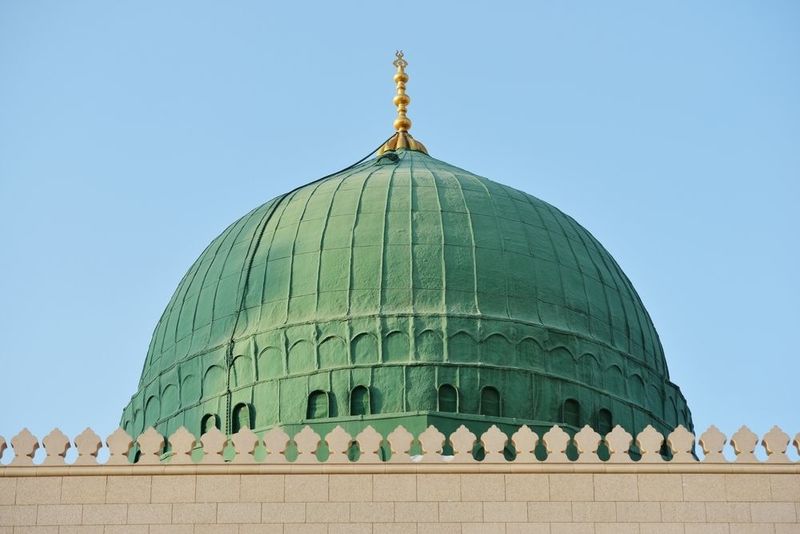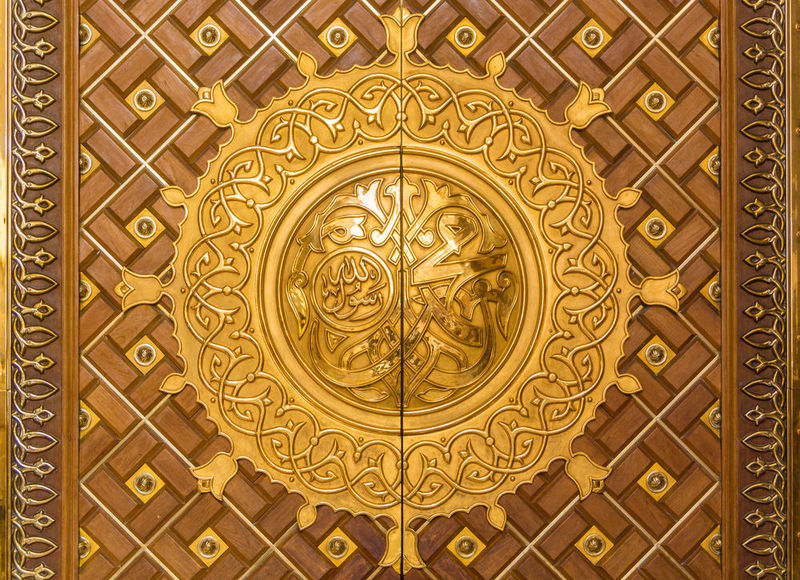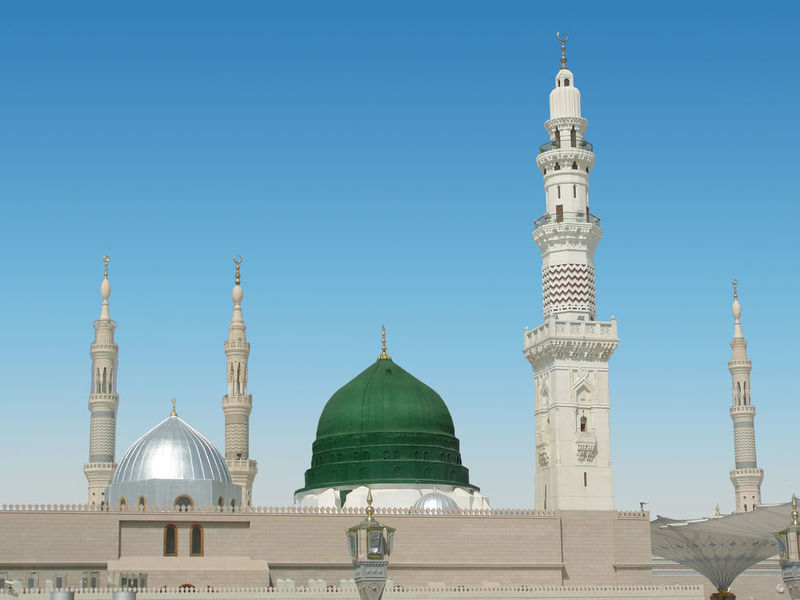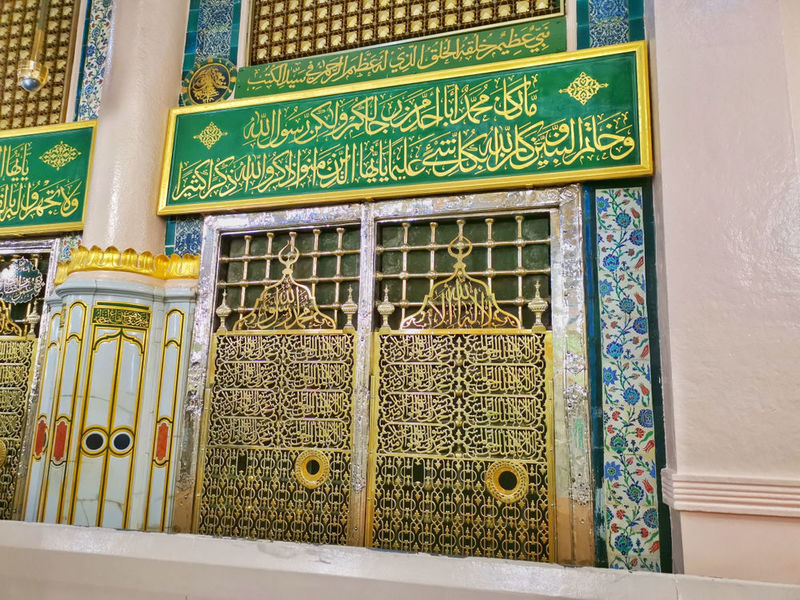How to love Prophet Muhammad s.a.w.
This article was first published on 5 November 2019 and has since been updated as of 4 December 2025.

Praise be to Allah.
Loving the Prophet s.a.w. is a remarkable path to accomplish virtues and excellence. Loving him s.a.w. is part of iman (faith). Without the Prophet s.a.w, we would not know about our faith1. Thus, loving the Prophet s.a.w. is essential to achieving excellence and the completion of faith. As mentioned in the hadith:
لَا يُؤْمِنُ أَحَدُكُمْ حَتَّى أَكُونَ أَحَبَّ إِلَيْهِ مِنْ والِدِهِ وَوَلَدِهِ وَالنَّاسِ أَجْمَعِينَ
"None of you have truly believe (complete sound faith) until I am more beloved to him than his father, his son and all of humankind."
(Sahih Al-Bukhari and Muslim)
Our scholars differ on whether love for the Prophet is an inherently natural disposition (حب الطبع) for every believer or is it love by choice2 (حب الاختيار). Loving the Prophet at an elementary degree can naturally blossom just by embracing faith. Commenting on this hadith, Imam Abu Sulaiman Al-Khattabiy views that it is love by choice. In other words, it has to be developed and nurtured through knowledge about his life, such as his character, sacrifices and teachings.
For most people, it is natural to love our families, friends, and even ourselves. However, choosing to love the Prophet s.a.w. profoundly and above all others, by deeply knowing him, is a conscious decision that signifies the completion of our faith. Abdullah Ibn Hisham r.a. reported:
كُنَّا مع النَّبيِّ صَلَّى اللهُ عليه وسلَّمَ وهو آخِذٌ بيَدِ عُمَرَ بنِ الخَطَّابِ، فَقالَ له عُمَرُ: يا رَسولَ اللَّهِ، لَأَنْتَ أحَبُّ إلَيَّ مِن كُلِّ شَيْءٍ إلَّا مِن نَفْسِي، فَقالَ النَّبيُّ صَلَّى اللهُ عليه وسلَّمَ: لَا، والَّذي نَفْسِي بيَدِهِ، حتَّى أكُونَ أحَبَّ إلَيْكَ مِن نَفْسِكَ، فَقالَ له عُمَرُ: فإنَّه الآنَ، واللَّهِ، لَأَنْتَ أحَبُّ إلَيَّ مِن نَفْسِي، فَقالَ النَّبيُّ صَلَّى اللهُ عليه وسلَّمَ: الآنَ يا عُمَرُ
“We were with the Prophet s.a.w, and he was holding the hand of Umar ibn Al-Khattab. Umar said to him, ‘O Rasulullah, you are more beloved to me than everything except my own self.’ The Prophet s.a.w. replied, ‘No, by the One in whose hand is my soul (Allah), not until I am more beloved to you than your own self.’ Umar then said, ‘Now, by Allah, you are more beloved to me than my own self.’ The Prophet s.a.w. responded, ‘Now, O Umar (you have complete faith).’”
(Sahih Al-Bukhari)
Umar r.a. is well-known today as one of the closest companions of the Prophet s.a.w. Choosing to love the Prophet does not mean it is a forced love. Love, a matter of the heart, cannot be forced. But it can be discovered and nurtured by knowing the reality of the Prophet s.a.w, just as in the example of Sayyiduna Umar ibn Al-Khattab r.a. He is known to be very concerned and protective of the Prophet s.a.w. Towards the end of his life, Umar r.a. requested to be buried next to his beloved:
وَقُلْ يَسْتَأْذِنُ عُمَرُ بْنُ الْخَطَّابِ أَنْ يُدْفَنَ مَعَ صَاحِبَيْهِ
"And say to (Aishah r.a. ‘Umar bin Al-Khattab asks the permission to be buried with his two companions (i.e. Prophet Muhammad s.a.w, and Abu Bakr r.a.)"
In this article, we will explore some significant ways to express and nurture our love for the Prophet s.a.w. Here are four ways to consider:
1. Looking up to Prophet Muhammad s.a.w. as the perfect role model

It is part of human nature to emulate others in their behaviour, interests and moral values, especially those we admire and love. When a person experiences profound love for another, it will naturally cause the person to show deep affection for what is dear to the beloved. People would cross the seas just to please and reach what they love.
Read: Fudayl Ibn 'Iyadh: The journey of love and repentance
The Prophet’s excellent character is a form of beauty that captured the hearts of many. Furthermore, Allah s.w.t. declares Himself the Prophet’s status as being the best example:
كَانَ لَكُمْ فِي رَسُولِ اللَّهِ أُسْوَةٌ حَسَنَةٌ لِّمَن كَانَ يَرْجُو اللَّهَ وَالْيَوْمَ الْآخِرَ وَذَكَرَ اللَّهَ كَثِيرًا
“Indeed, in the Messenger of Allah you have an excellent example, for whoever has hope in Allah and the Last Day, and remembers Allah often.”
(Surah Al-Ahzab, 33:21)
In this verse, Allah s.w.t specifically mentions the Prophet s.a.w to be the believers’ best example. This includes all aspects of the Prophet’s life, from his sayings and actions.
Other than his physical aspect, he is also the perfect example for spiritual excellence. Furthermore, we may also understand from the verse above that the Prophet s.a.w showed us the best way of life, which means it benefits the believers both in this world and in the hereafter.
By putting the Prophet s.a.w. as our role model, we are constantly reminded and thinking about the Prophet s.a.w. His preferences and admiration will naturally become dearer to us.
2. Following Prophet Muhammad’s beautiful footsteps

With the Prophet s.a.w. as our role model, it typically becomes easier to follow in his footsteps. Love is not something to be merely declared but to show and express through actions3. A sincere love will bear the fruition of emulation. Likewise, by emulating, our love will blossom.
وَمَنْ أَحْيَا سُنَّتِي فَقَدْ أَحَبَّنِي. وَمَنْ أَحَبَّنِي كَانَ مَعِي فِي الْجَنَّةِ
“Whoever enlivens my Sunnah, then he has loved me. And whoever loves me shall be with me in Paradise.”
(Sunan At-Tirmidhi)
Everything is perfect in Paradise (jannah), but there are different degrees of Heavens in the Hereafter. Some of us may be blessed with the lower Heavens and some of us may be adorned with the company of Prophet Muhammad s.a.w. in the highest of Heavens.
On top of having such excellent merit in the Hereafter, following the Prophet also bears tremendous benefit for us in this world. He was sent to perfect the moral values of humankind. In a hadith, the Prophet mentioned:
إِنَّمَا بُعِثْتُ لِأُتَمِّمَ صَالِحَ الأَخْلاقِ
“Verily, I was sent to perfect good character.”
(Musnad Ahmad)
This hadith emphasised to us the importance of moral values that are embedded as part of the pillars of this beautiful religion. Therefore, in following the footsteps of Prophet Muhammad s.a.w, moral values cannot be separated from the physical aspect of the sunnah, such that both are completely integral with one another.
Read: Understanding the sunnah of the Prophet s.a.w.
For example, Anas bin Malik r.a reported a hadith where three men came to the Prophet’s wives inquiring of the Prophet’s acts of worship. When they were informed of it, they realised that they could do much more. The first of them said: “As for me, I will stand awake the whole night and pray throughout”. The second said: “I will fast for a year and will not break my fast”. The third then said: “I will isolate myself from women and will never go into marriage”. The Prophet s.a.w then came and heard their comments. The Prophet said:
أَمَا واللَّهِ إنِّي لَأَخْشَاكُمْ لِلَّهِ وأَتْقَاكُمْ له، لَكِنِّي أصُومُ وأُفْطِرُ، وأُصَلِّي وأَرْقُدُ، وأَتَزَوَّجُ النِّسَاءَ، فمَن رَغِبَ عن سُنَّتي فليسَ مِنِّي
“As for me, I am the most fearful of Allah and the most God-conscious among you. Yet, I fast and break my fast. I pray and I rest. I even get married. Whoever deviates from my Sunnah, is not with me.”
(Sahih Al-Bukhari)
These three men were so passionate to do the physical acts of worship that they began to show signs of excessiveness and overzealousness. To approach life or to observe deeds in the most merciful and best manner, according to our respective circumstances, is also part of the sunnah.
Moreover, the sunnah of Prophet Muhammad teaches us not only to show good manners when interacting with others, but also to display good manners with the Creator. This spiritual aspect of virtue is especially unique to the faithful and cannot be articulated by modern or contemporary ethics. Indeed, Allah s.w.t looks at the hearts of His servants.
Both our inner and outer states are linked to one another and can never be separated. In Ihya Ulumuddin (Revival of Islamic Sciences), Imam Al-Ghazali defined moral value or character as “a firmly entrenched form that resides in the soul, from which actions are expressed with ease”. This means that our actions are the apparent expressions of our soul. The clearer the soul, the more excellent one’s character is.
3. Sending our peace and blessings upon Prophet Muhammad s.a.w.

Love urges us to think of the beloved frequently and yearn to be in the beloved’s company. Similarly, our love for the Prophet s.a.w. will help us to constantly utter words of remembrance for the Prophet s.a.w. Likewise, sending peace and blessings (reciting the selawat) will increase our love for the Prophet s.a.w. Through our selawat, we can hope to be in his company in the Hereafter, as mentioned in a hadith:
أَوْلَى النَّاسِ بِي يَوْمَ الْقِيَامَةِ أَكْثَرُهُمْ عَلَيَّ صَلَاةً
“The closest of people to me on the Day of Resurrection are those who sent the most blessings upon me.”
(Sunan At-Tirmidhi)
If the path to follow and emulate him becomes difficult, scholars have advised us to increase in our selawat upon the Prophet s.a.w. This can help relieve us of our hardships and guide us in the path to continue pursuing our love for the Prophet s.a.w.
The virtues of sending our selawat upon the Prophet s.a.w. are so many that the Syrian scholar, Sheikh Sirajuddin Al-Husayni listed around 31 merits and benefits in his book ‘Sending Prayer Upon The Prophet s.a.w; its rulings, virtues and benefits’.
Read: 5 benefits of reciting selawat upon Prophet Muhammad s.a.w.
4. Reading about our beloved Prophet Muhammad s.a.w.

Love transcends reason, but that doesn’t mean we should entirely deny the role of reason. As the Malay saying goes “Tak kenal maka tak cinta” (To know is to love). Which is why it is equally important to develop our love based on sound knowledge. Afterall, the heart can waver. So, knowledge is important.
Here are some books that may help us in knowing the Prophet s.a.w:
1. Ash-Shama’il al-Muhammadiyya; The Portrait of the Prophet by Imam At-Tirmizi
2. Muhammad The Best of Creation s.a.w; A glimpse of his blessed life by Sayyid Muhammad ibn Alawi al-Maliki al-Hasani (trans. Amjad Mahmood)
3. Proofs of Prophethood by Shaykh Abdel Haleem Mahmoud (trans. Aisha Bewly)
Read: 5 books to read about Prophet Muhammad s.a.w.
Although we have yet to meet the Prophet s.a.w, it is normal to love someone we have yet to physically meet in person. Anas bin Malik r.a. reported that the Prophet s.a.w. said:
ودِدْتُ أنَّا قدْ رَأَيْنا إخْوانَنا قالوا: أوَلَسْنا إخْوانَكَ؟ يا رَسولَ اللهِ، قالَ: أنتُمْ أصْحابِي وإخْوانُنا الَّذِينَ لَمْ يَأْتُوا بَعْدُ
“I wish we could meet our brothers.” The Companions asked, “Are we not your brothers O Rasulullah?” (The Prophet) said, “You are my companions. Our brothers are those who have yet to come (in this world).”
(Sahih Muslim)
Conclusion
By reflecting on some of the points above, let us pause and think deeply about our relationship with Prophet Muhammad s.a.w. Have we done enough to nurture and express our love for Prophet Muhammad s.a.w?
Prophet Muhammad s.a.w. have yearned to meet us even before we were born into this world. He would always think about us and be concerned about our well-being. In a hadith narrated by Abu Hurairah r.a, the Prophet s.a.w. said:
لِكُلِّ نَبِيٍّ دَعْوَةٌ مُسْتَجابَةٌ يَدْعُو بها، وأُرِيدُ أنْ أخْتَبِئَ دَعْوَتي شَفاعَةً لِأُمَّتي في الآخِرَةِ
“Every prophet has a supplication that is answered, and I wish to keep my supplication as intercession (syafa’ah) for my ummah (community) in the Hereafter”
(Sahih Al-Bukhari and Muslim)
All the prophets a.s. are given a special dua to pray for, which will be granted by Allah s.w.t. Prophet Muhammad s.a.w. could have prayed for whatever he desired. Instead of praying for himself or only for the people who were present during his time, he postponed to pray for all of us in the Hereafter.
As his followers, how can we return the immense love that the Prophet s.a.w. has for us?
We can start with strengthening our relationship with the Prophet. This can be achieved by increasing the selawat to him. For every peace and blessings we send to the Prophet s.a.w, he will respond to us. In a hadith, Rasulullah s.a.w. mentioned that,
مَا مِنْ أَحَدٍ يُسَلِّمُ عَلَيَّ إِلَّا رَدَّ اللَّهُ عَلَيَّ رُوحِي حَتَّى أَرُدَّ عَلَيْهِ السَّلَامَ
“None of you who send me their salutation (salam), except that Allah returns my soul and I return him his greeting.”
(Sunan Abi Daud)
So, what steps will you take today to strengthen your love for the Prophet s.a.w.?
May Allah s.w.t grant us His love and the love of His Prophet s.a.w. May we be granted the best way of emulating the Prophet s.a.w both outwardly and inwardly under the care of Allah’s protection and assistance, by His Mercy. Ameen.
References
1 Nur Ad-Din ‘Itr, Love for The Messenger Is Part of Faith (حب الرسول صلى الله عليه وسلم من الإيمان), pg.1
2 Abu Zakariyya Yahya Ibn Sharaf An-Nawawi, Al-Minhaj Sharh sahih Muslim. Hadith Prophet
3 Nur Ad-Din ‘Itr, Love for The Messenger Is Part of Faith (حب الرسول صلى الله عليه وسلم من الإيمان), pg.10
Articles on Muslim.Sg may be reproduced electronically or in print with prior permission from Muslim.Sg. Proper credit must be given to the author(s) and Muslim.Sg.

